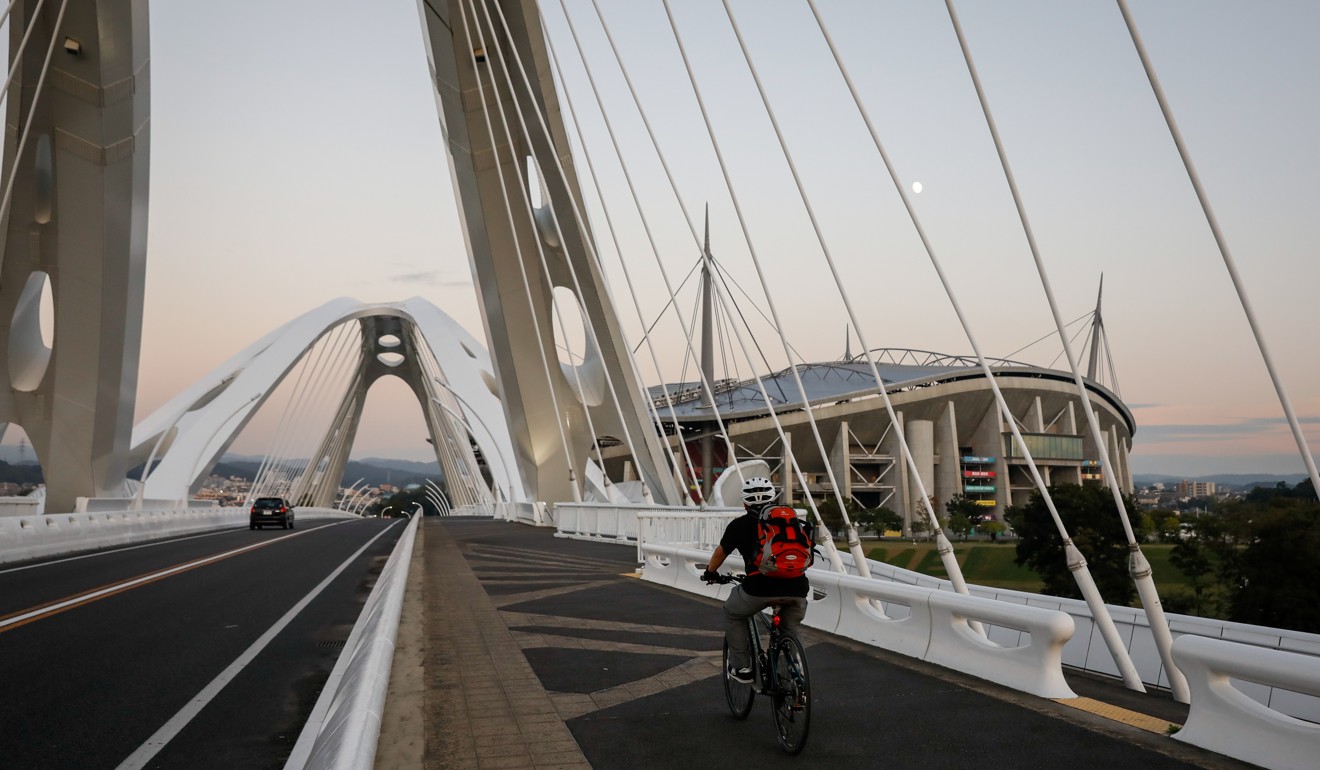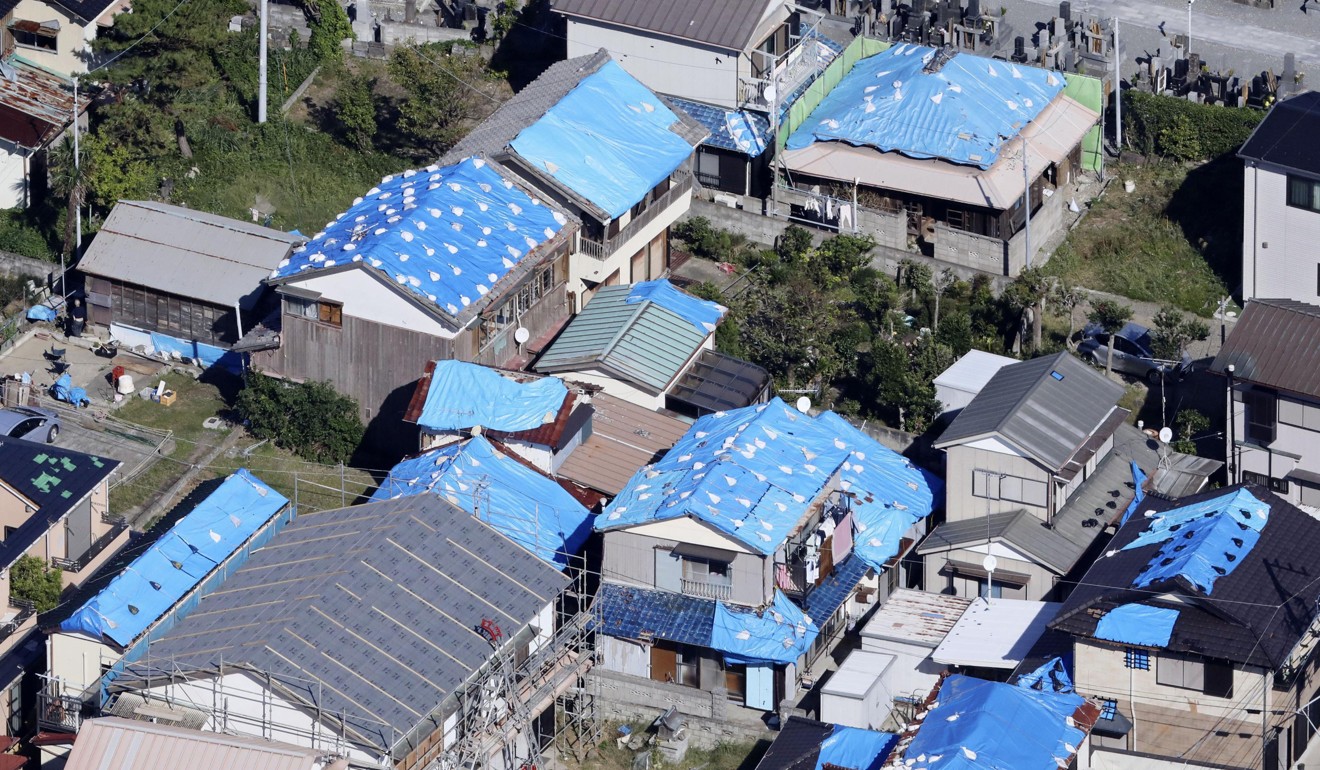
Japan braces for Super Typhoon Hagibis, two Rugby World Cup games cancelled
- Hagibis, which is the Philippine word for ‘speed’, is expected to hit near Nagoya in central Japan on Saturday morning
- Last month, Faxai hit eastern Japan, leaving three people dead and 930,000 without electricity. This time, residents are taking no chances
Residents of central and eastern Japan were on Thursday battening down the hatches or evacuating as the weather system over the Pacific Ocean approached. It has developed rapidly and took only 18 hours to reach super typhoon status.
Hagibis, which is the Philippine word for “speed”, is expected to hit near Nagoya in central Japan on Saturday morning.
The Japan Meteorological Agency issued warnings of heavy rain, gale-force winds, high waves and storm surges. The agency has urged precautions earlier than usual.

Hospitals were forced to rely on emergency generators, ATMs stopped working and supermarkets were left with spoiled food. This time, residents are taking no chances.
Three dead as Typhoon Faxai hits Tokyo
“I’ve decided to leave and go to my parents’ house in Saitama prefecture for the weekend,” said Yuki Hori, a woman who works for the local government in Yokohama.
“The last typhoon was really bad and I’m worried this one is going to be worse, so I’ve decided to leave straight after work on Friday evening.”

Yokohama is in the path of the storm, prompting organisers of the Rugby World Cup to cancel the England-France game scheduled for Nissan Stadium on Saturday evening. The match between New Zealand and Italy in Toyota City, central Japan, was also called off.
It is the first time in the tournament’s 32-year history that games have been cancelled due to weather and a decision is pending on the four matches scheduled for Sunday, including the pivotal clash between Japan and Scotland.
Aiko Nakashima, an office worker in Tokyo, cancelled her weekend plans as it would be “too dangerous” to go out.
If it’s a proper, full-on typhoon then I won’t even try to go out.
“They are saying this typhoon is going to be even worse than the last one, so it’s too dangerous to go anywhere,” Aiko said. “I think I’m just going to stay home and read or watch television.
“My mother told me she is going out to buy bottled water, more food and spare batteries today just in case something happens.”
Travel chaos expected as flight cancellations set to hit Tokyo airports
Robert Day, an Australian travel agent, has been leading a group of visitors on an architecture tour and hopes they can avoid the worst of the bad weather.
“We are in Kyoto at the moment and, from what I can tell, this area should not be too badly affected as the storm is meant to be closer to Tokyo,” he said.
“If it is just rain, then I’m not too worried. But if it’s a proper, full-on typhoon then I won’t even try to go out. But it’s hard to know this far in advance. We’ll just have to wait and see how bad it is.”

Kazuhisa Tsuboki, a professor at Nagoya University who specialises in the study of super typhoons, warned the storm was “significantly stronger” than Faxai.
“When it comes closer to making landfall, the violent winds are going to be a big problem and people in Nagoya and Tokyo will be in danger,” he said.
“Because this storm is more powerful, the winds will be stronger, the rainfall will be heavier and the damage will be more severe than caused by Faxai, so people need to be very careful.
Japan’s worst summer ever: grey skies and economic concerns
“When it makes landfall, Hagibis may be one of the strongest to hit Tokyo since 1958, when Typhoon Ida struck Tokyo. That was a serious disaster and more than 1,200 people died.
“The media is reporting the strong wind is going to be the biggest problem, but I think the heavy rain is going to be worse. It is going to cause severe flooding and landslides in hillsides that have been weakened by the rain.”
Additional reporting by Reuters, Agence France-Presse

